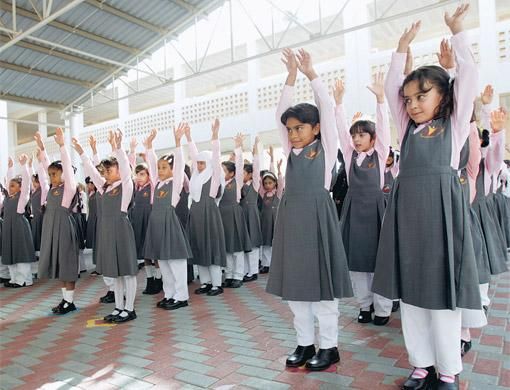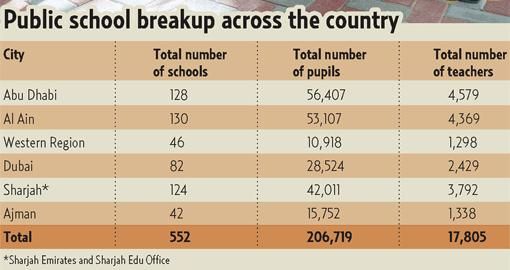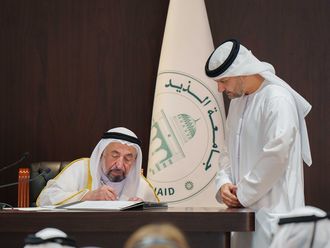Abu Dhabi: The Ministry of Education (MoE) will extend accreditation to 71 public schools across the UAE after it concluded that the institutions satisfied necessary criteria, Gulf News has learnt.
The School Licensing and Accreditation Department at the ministry had made inspection visits to a number of schools two months ago and the ministry's decision comes in the wake of the team's findings.
There are currently 552 public schools in the UAE, with 206,719 students and 17,805 teachers.
Shaikha Rashed Al Shamsi, director of the School Licensing and Accreditation Department at the MoE, outlined eligibility criteria the ministry looked for while accrediting institutions.
She said that for an application to be successful, the school "must have been functioning for at least two years, should not be located in a remote area, should have a certain level of infrastructure and should have at least 350 students".
Credentials of faculty
"The academic qualifications and experience of principals and teachers and the right proportion of teachers and administrators to the number of enrolled students is of equal importance," Al Shamsi said.
Once the ministry submitted a verification report stating its findings about the selected schools, it was decided that a pilot project starting in January 2009 would see ten of the institutions getting the recognition.
"We need to assess the initiative before we take it to the other schools. We will evaluate the positives and negatives and see how beneficial it is and try to learn from our experience," said Al Shamsi.
The project is officially expected to kick in by 2010 and the ministry will be required to evaluate academic programmes at individual schools.
Minister of Education Dr Hanif Hassan on his part said programmes in public schools offering new avenues to professional education were especially heartening.
"We are organising training programmes for teachers and principals so that there is a marked improvement in the quality of teaching. At the end of the day, a nation's ultimate empowerment is offering its children a good quality education," he said.
Satisfaction levels
The accreditation process also emphasises the adoption of technology besides satisfactory facilities and services and teaching standards. Sports and extra-curricular activities and enhanced levels of satisfaction for parents and students are also taken into account.
"We plan to strengthen the academic capabilities of the teaching staff based on international assessments and teaching standards - this will take time, 71 schools is not a small number," concluded Al Shamsi.














